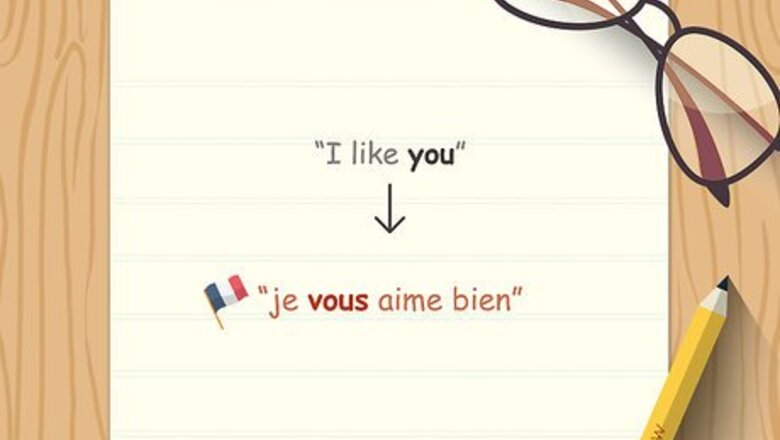
views
X
Research source
Speaking Formally
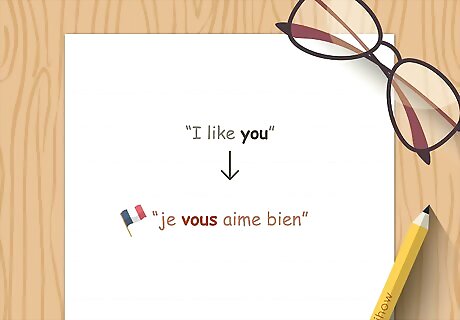
Use formal speech when talking to strangers. In French, there are two different ways of saying "you." The vous form is the more formal version. When you're speaking to people you don't know, especially adults or people older than you, vous is appropriate. Vous is also the plural form of "you" in French, so you would use it when addressing several people, regardless of their ages. Frequently you'll refer to someone as "monsieur" or "madame" if you're using the formal vous pronoun singularly.
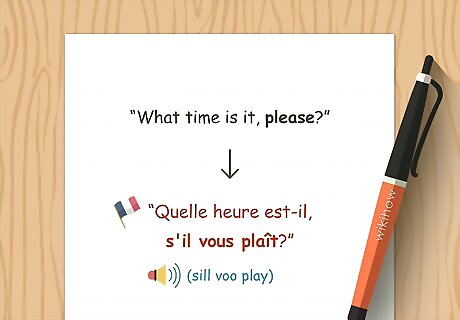
Say "s'il vous plaît" (sill voo play) to mean "please." The phrase "s'il vous plaît" can be translated to mean "If you please." It literally means "if it pleases you." The word plaît is the conjugated form of the verb plaire, which means "to please" or "to like." For example, you might say "Quelle heure est-il, s'il vous plaît?" to mean "What time is it, please?"
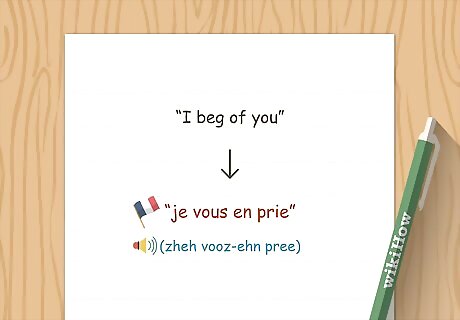
Use "je vous en prie" (zheh vooz-ehn pree) for more intensity. The phrase "je vous en prie" is more accurately translated to "I beg of you." Just as such a phrase would be used in English, it's generally reserved for extreme, even desperate situations. For example, you might say "Ne me dénoncez pas, je vous en prie!" or "Don't report me, please!" This could also be translated as "Don't report me, I beg of you!"
Talking to Friends and Family
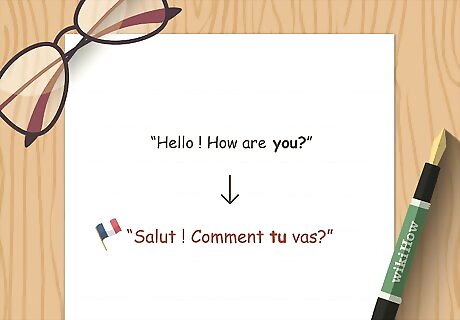
Use tu with people you know. The tu form of you is a casual, familiar form of the pronoun. It is only singular. Use it when talking to a friend or family member, or someone your age or younger. When in doubt, use vous with strangers in a social situation. They will correct you if you're wrong, but err on the side of politeness and formality.
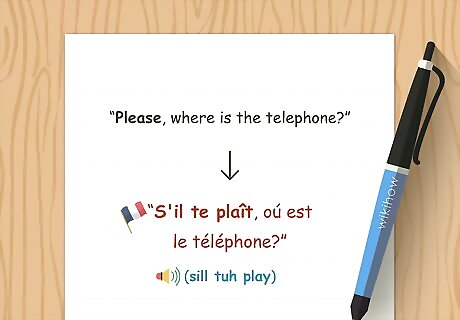
Say "s'il te plaît" (sill tuh play) to mean "please." Just because you're speaking informally doesn't mean your manners disappear. The object pronoun te means you are speaking to a single person who is a contemporary or familiar to you. For example, you might say "S'il te plaît, oú est le téléphone?" or "Please, where is the telephone?"
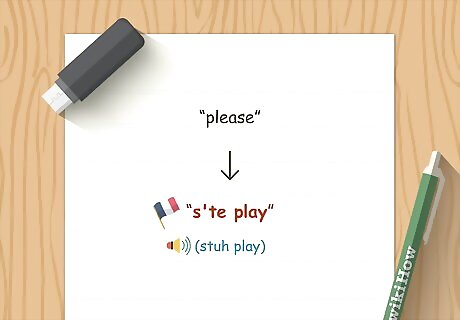
Say "s'te play" (stuh play) when speaking quickly. Native French speakers often blend the first syllables of "s'il te plaît" together, making the phrase two syllables instead of three. Saying please this way will make you sound more natural.
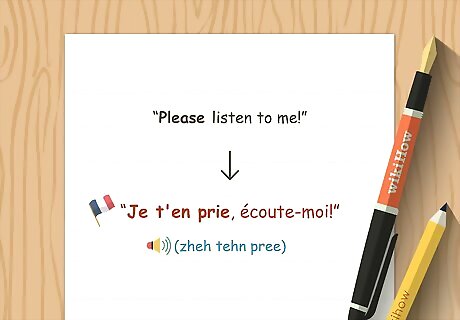
Use "je t'en prie" (zheh tehn pree) in more intense situations. The phrase "je t'en prie" is more literally translated as "I beg of you," so generally you want to save it for serious matters. With the tu form of address, however, it's sometimes used jokingly among friends. For example, you might say "Je t'en prie, écoute-moi!" or "Please listen to me!" This could also be translated as "I beg of you, listen to me!" "Je t'en prie" can also be translated as "by all means." For example: "Amène-le, je'ten prie," or "bring him along, by all means."











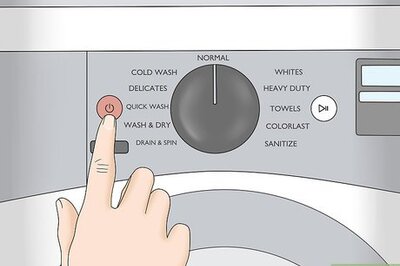








Comments
0 comment